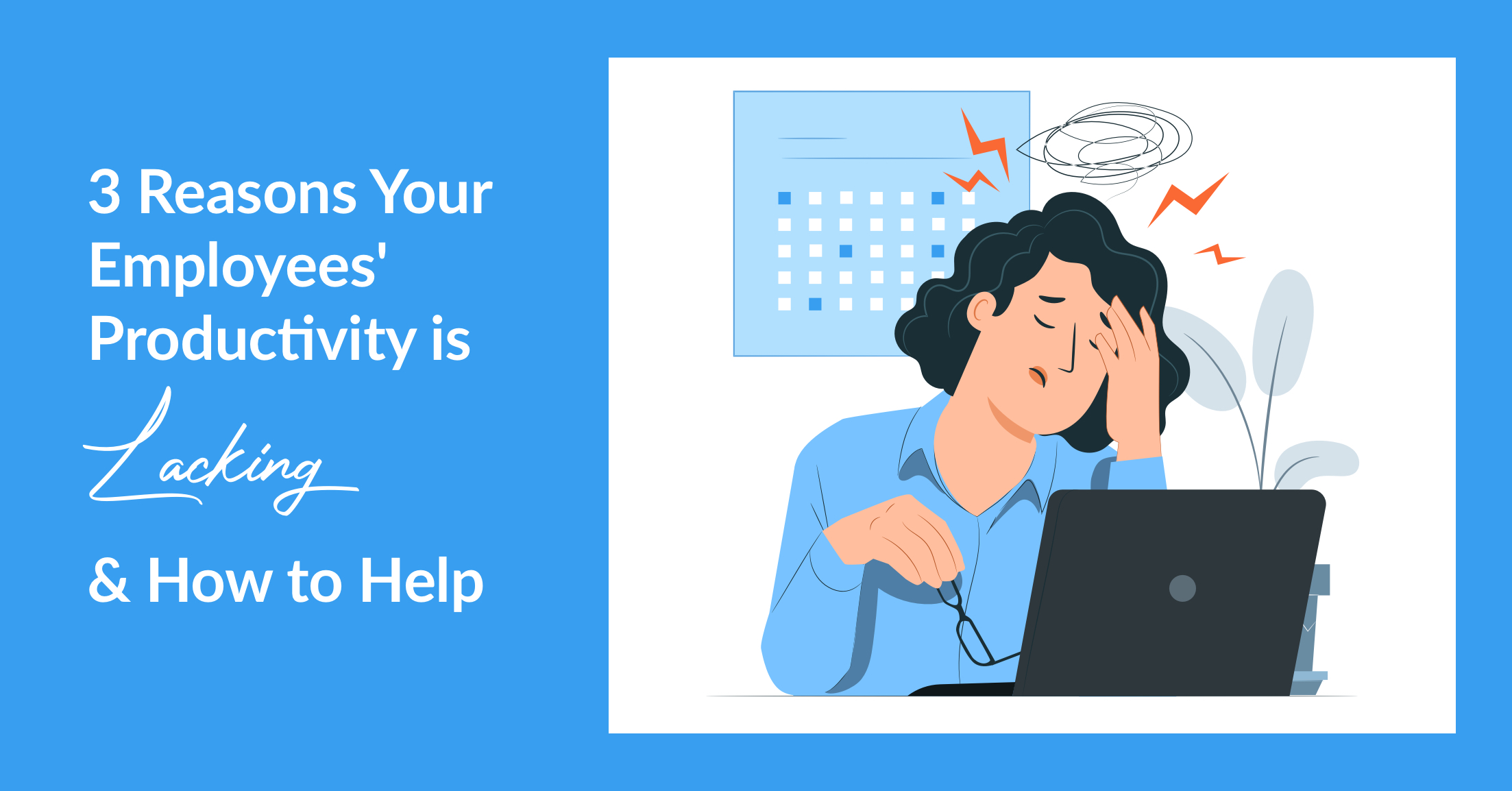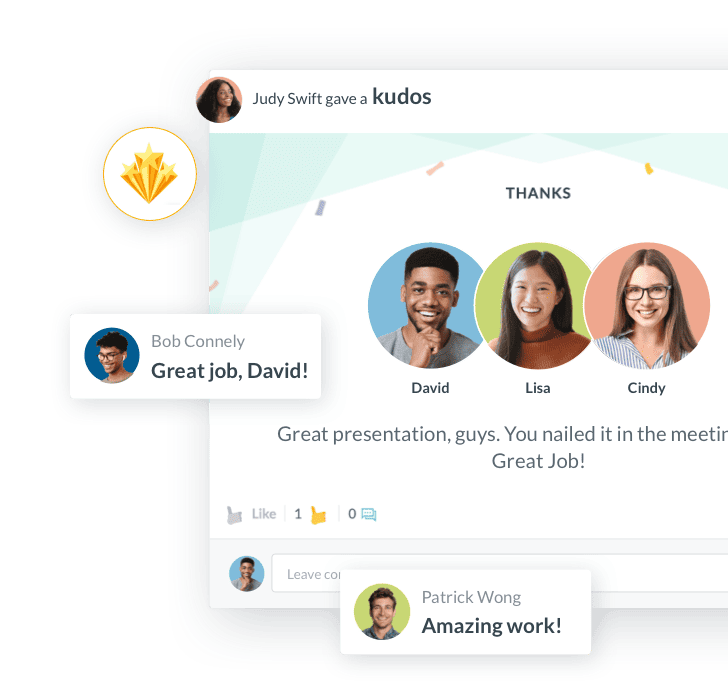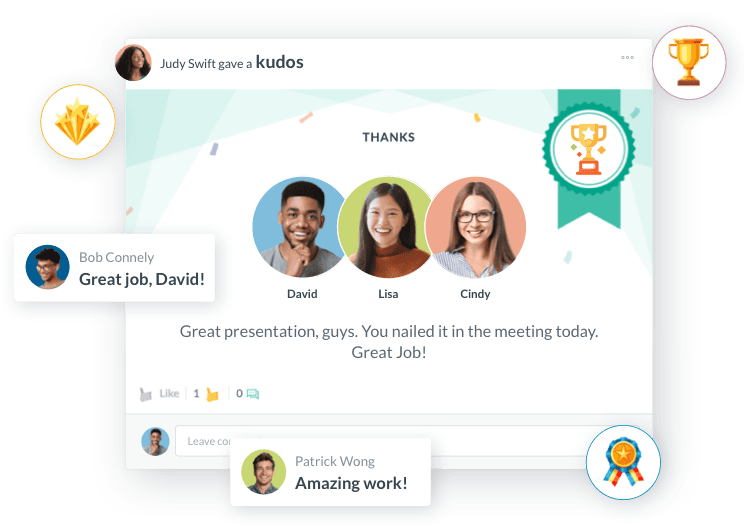3 Reasons Your Employees' Productivity is Lacking and How to Help



 Cut onboarding time
by 60%—here's the
Ultimate Checklist
that helped do it.
Cut onboarding time
by 60%—here's the
Ultimate Checklist
that helped do it.

Have you ever shown up to work, but all day you just feel like you're in a fog? You can't concentrate, you feel like you might be getting sick, but your to-do list keeps growing instead of you being able to check things off of it. You don't feel like you're at 100% but you know you can't go home because you have so much work to get done. So, you continue to sit there and stare at your screen and try to get through it all. That is an example of presenteeism from an employee's perspective.
By definition, presenteeism is when an employee shows up for work but is unable to fully perform or function because they are sick, tired, stressed, injured, or any other number of conditions or distractions.
The issue of absenteeism is more commonly known, which refers to people being physically out of the office, oftentimes an ongoing issue, with no good excuse. Absenteeism is much easier to recognize and track than presenteeism. If you have low rates of absenteeism, that may actually be a warning sign that your employees are showing up to work when they are unwell.


Are you unsure if your employees are suffering from presenteeism? Here are three reasons they might not be productive and ways you can help them and your bottom line:
1. Insufficient Health Insurance and Time-Off Policies
America is behind the rest of the working world when it comes to paid time off. The US averages 10 paid holidays per year, while the highest 6 countries come in at 30-37 days. Many European countries provide several months or even years of paid maternity or paternity leave while the U.S.’s Family & Medical Leave Act (FMLA) only mandates that an employee can take up to 12 weeks of unpaid leave, only covers an estimated 60 percent of the workforce, and disproportionately excludes working parents.
In 2017, 27.4 million nonelderly Americans didn't have any health insurance coverage due primarily to the lack of affordable options. The American unemployment rate is at an all-time low, but millions of workers are actually working more than one part-time job to make ends meet. Typically, most part-time jobs do not provide any health insurance.
Insufficient health insurance leads to people visiting the doctor less and doing less preventative care which leads to more illnesses, chronic or otherwise, and the lack of time off leads to workers coming into work when they are sick so they don't miss out on paid wages.

2. "Sandwich Generation, " Single Parents, Dual-Earner Households, & Unpaid Caregivers
Another reason your employees might not be as productive is if they fall into the “Sandwich Generation.” The "Sandwich Generation" is a group of people typically in their 30s or 40s who are raising their own children while also being responsible for the care of aging parent/s. According to Harvard Business School, three out of four (73%) employees reported having some type of current caregiving responsibility for the care of an elderly or disabled family member, relative, or friend. Caregivers working at least 15 hours per week indicated that this assistance significantly affected their work life. As baby boomers continue to age, the number of elderly people needing assistance is expected to continue to grow rapidly.
The need for caregiving and working individuals to contribute so much at home, either as single parents or dual-earner households, leads to workers saving their time off to care for others and coming into work sick, injured, or otherwise indisposed.

3. Nonexistent Focus on Mental Health
Things in the U.S. are improving regarding mental health awareness, but mental health issues are still largely stigmatized. If a workplace expects people to come in when physically ill, there is no way they are going to understand or respect that someone might need time off for "invisible" illnesses like anxiety or depression. In fact, a culture of presenteeism can lead to higher rates of anxiety and depression in the workforce.
American Medical Association studies found that on-the-job productivity loss (presenteeism) resulting from depression and pain was roughly three times greater than absence-related productivity loss (absenteeism) attributed to these conditions. Mental health issues can cause a lack of sleep which leads to chronic fatigue as well as memory and concentration issues.

Auditing and Operations Administrator of Medlinks Cost Containment, Inc. and Medlinks Staffing, LLC.
“I can’t say this enough: Without HR Cloud, we could not have communicated important project information or demonstrated that we could take on an increased workload. We now provide real-time workforce statistics and productivity reports that have helped us win more projects.”
What Can You Do to Help?
1. Offer Adequate Time off
This may seem obvious, but it is important that you provide your employees with paid time off. If you absolutely can’t offer paid time off, at the very least, don’t allow a culture of shame and blame around taking an unpaid day off when someone is unwell, whether or not the reason behind the request is visible or invisible.
2. Invest in Comprehensive Health and Wellness
As a company that cares about the wellbeing of your employees, you should provide comprehensive health and wellness offerings that cover both physical and mental health as well as fitness and overall wellness in the workplace. Low-cost, value-based health coverage is a large factor. If you're having trouble finding what you need within traditional health offerings, you could consider a more contemporary solution like offering an onsite or near-site clinic.
3. Build a Culture of Trust and Understanding
One of the reasons employees may not feel comfortable taking time off when they are unwell is they have seen others come in in a similar state. They feel like everyone does the same, so who are they to stay home? This may be a result of a lack of communication and trust between employees and management. One way to build understanding and trust between coworkers is to encourage teamwork and cooperation. If the whole team helps cover when someone is out, it doesn't add a ton to each individual's workload. But it does take a huge amount of stress off of the person that needs it. Management can also jump in to help cover when someone needs to be out.
4. Educate and Empower Direct Management
It's important that all of management, especially your employee's direct managers, fully understand the issue of presenteeism and how they may be directly contributing to it. Consider holding a seminar with all of management to educate them on the warning signs and actions that exacerbate employee presenteeism.
Once all of management understands the issue, they need to lead by example. If employees see them coming in early, leaving late, and working even when they are sick, they absolutely won't feel comfortable staying home themselves.
5. Offer Tools for Employees and Their Managers
Paid time off can help take care of your sick employees, but what about those who have stressful issues they constantly handle while at home and can’t forget about while at work? Learning how to support working caregivers, single-parents, and employees trying to make ends meet is critical.
Presenteeism is a major issue within the workplace currently, costing trillions of dollars per year. But, with a little understanding and some direct action, it can be minimized or even eliminated.
Author Bio: Michelle Chaffee is the founder of Connected Caregiving, a comprehensive solution to help employers recognize and support working caregivers.
 Discover how our HR solutions streamline onboarding, boost employee engagement, and simplify HR management
Discover how our HR solutions streamline onboarding, boost employee engagement, and simplify HR management
Keep Reading
Best Onboarding Practices for Manufacturing Companies: 15 Proven Tactics That Boost Retention
"Three simple changes to our onboarding process cut our 30-day turnover from 28% to 12%.
Equity in the Workplace: A Practical Guide to Building Fairness and Opportunity
Workplace equity shouldn't be an aspiration—it should be the foundation of how
7 Employee Relations Responsibilities That Transform Workplace Culture
Employee relations shapes how people experience work every single day. It's not just
Like What You Hear?
We'd love to chat with you more about how HR Cloud® can support your business's HR needs. Book Your Free Demo

Build a Culture of Recognition. Boost Engagement. Guaranteed.
Workmates empowers employees to stay informed, connected, and appreciated—whether they’re on the front line, in the office, or remote. Recognition drives 12x higher engagement.Trusted by industry leaders in every sector




Cut Onboarding Costs by 60%.
Take the confusion and follow-ups out of onboarding with automated workflows, digital forms, and structured portals—so new hires ramp faster 3X quicker.Trusted by industry leaders in every sector




